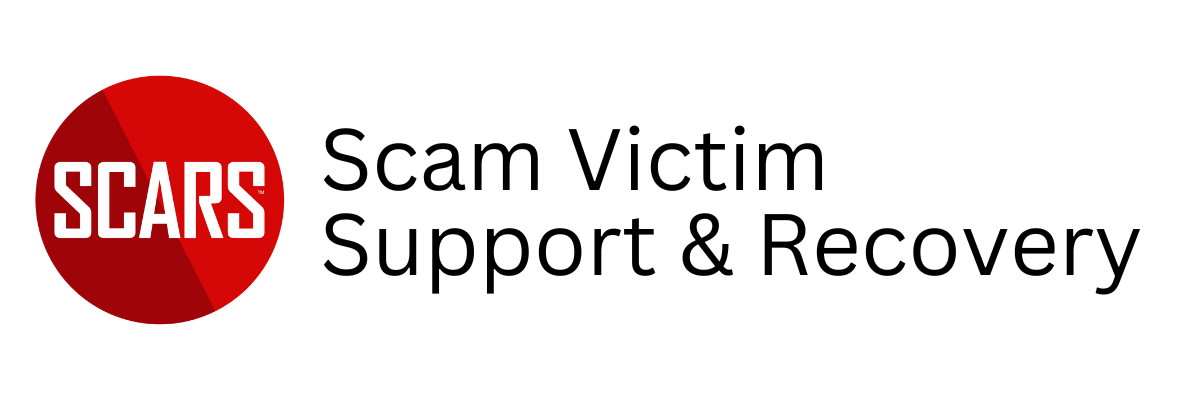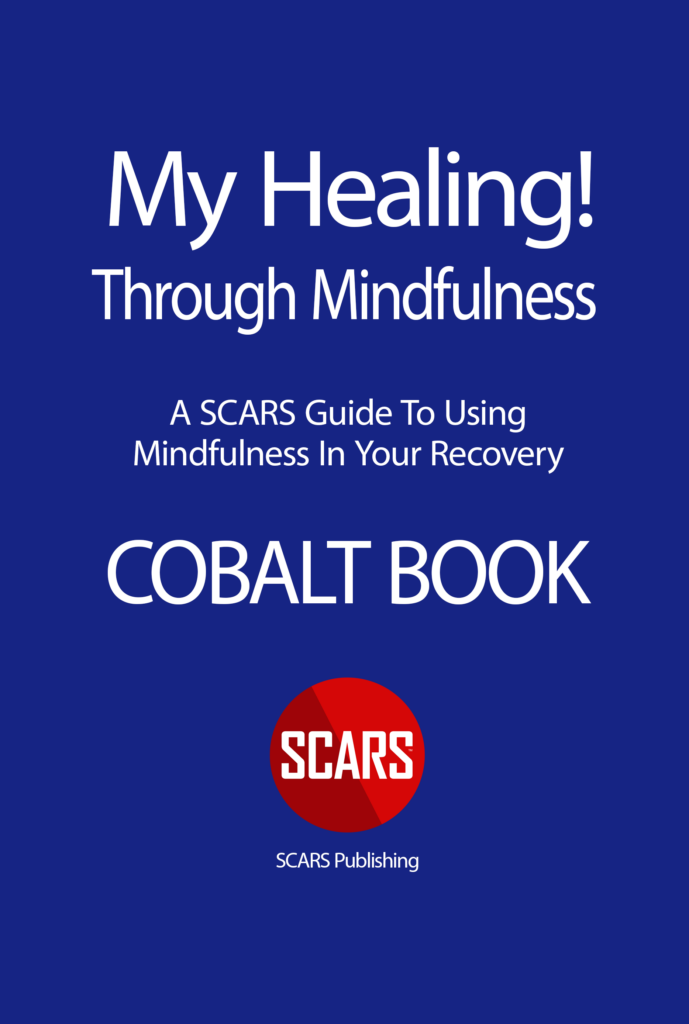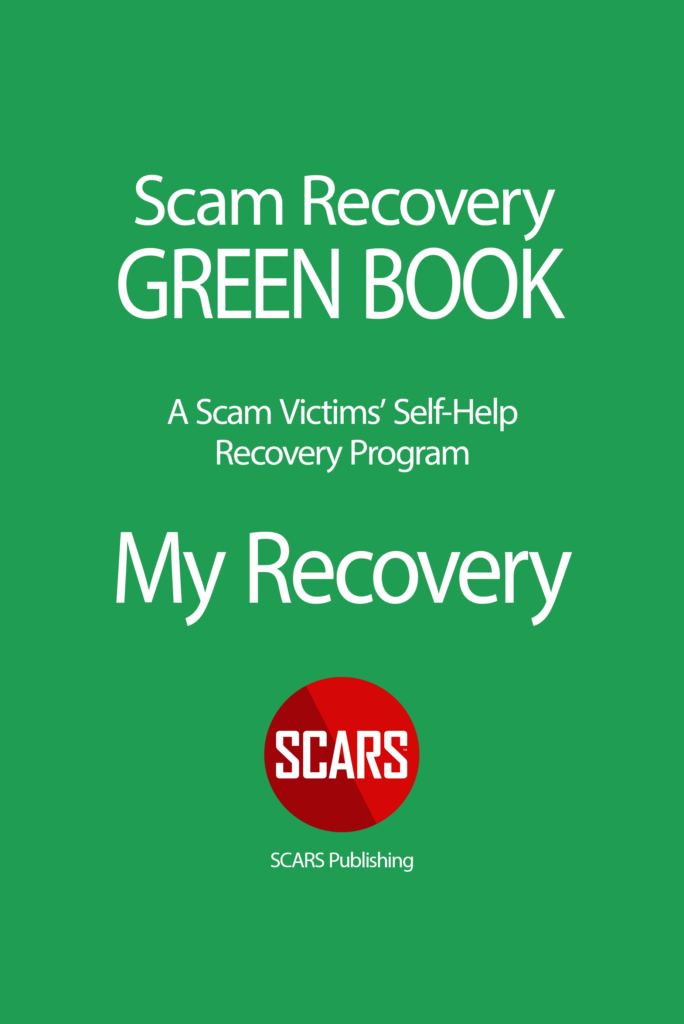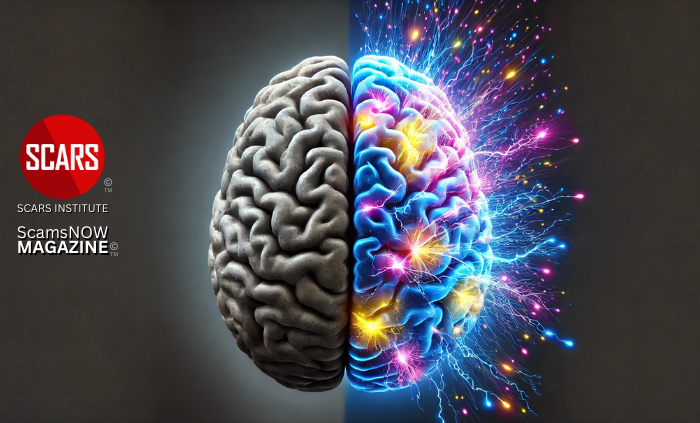For Scam Victims – The Idea Of Happiness – Finding It Again
Helping Scam Victims Understand the Foundations of Happiness and How to Find It
Primary Category: Recovery Psychology
Author:
• Tim McGuinness, Ph.D. – Anthropologist, Scientist, Director of the Society of Citizens Against Relationship Scams Inc.
About This Article
Rebuilding happiness for scam victims is a transformative journey of emotional healing and self-discovery. It begins with acknowledging and processing trauma, often with the support of counseling and a validating environment.
Reestablishing trust in oneself, others, and systems is pivotal, fostering resilience and a renewed sense of security. Through dedicated self-care, education about scams, setting achievable goals, and cultivating gratitude, victims can reclaim a sense of purpose and joy.
This journey empowers individuals to convert their trauma into strength, fostering enduring happiness grounded in self-compassion and meaningful connections.
By embracing these steps, scam victims not only heal from their experiences but also cultivate a deeper understanding of their resilience and capacity for growth.

Finding Happiness Again and Rebuilding Trust: A Vital Path to Recovery for Scam Victims
Finding Happiness for Scam Victims
Finding happiness after becoming a scam victim involves a journey of emotional recovery, self-forgiveness, and reclaiming control over one’s life.
The experience of being scammed leaves victims feeling violated, ashamed, and mistrustful, leading to a significant emotional toll.
To find happiness, every victim must first acknowledge and process their emotions. They must heal and learn to manage their trauma. They must allow their grief to evolve and process.
This can be facilitated in many ways. such as through counseling, support providers, or trusted individuals who provide a safe space allowing victims to express their feelings and validate experiences. Understanding that the scam was not a reflection of their worth or intelligence but rather a result of sophisticated manipulation can help victims move past self-blame. However, this is just the beginning of the journey.
As scam victims begin to heal, finding happiness involves rebuilding a sense of purpose and trust in themselves and others. Our material world views happiness wrongly. It is not about finding it in the things we have but in the trust we hold and the purpose we fulfill.
Each scam victim can begin by engaging in activities that bring joy, fostering positive relationships, and setting new personal goals that can create a renewed sense of direction. Developing resilience through these experiences can empower victims to take proactive steps in safeguarding themselves and others against future scams. By focusing on personal growth and self-compassion, scam victims can transform their trauma into a source of strength, leading to a more profound and enduring sense of happiness. Doing all of this is kind of ‘fake it until you make it,’ but true happiness comes from within and requires a deep shift in perception and value.
After all, trying to find happiness outside of themselves was what led scam victims to be scammed in the first place.
What Happiness is NOT!
In our modern world, the pursuit of happiness is often conflated with the accumulation of material wealth, status, and superficial pleasures.
Advertisements and social media platforms incessantly bombard us with images of luxury cars, exotic vacations, and the latest gadgets, perpetuating the notion that happiness is synonymous with material possessions. This consumer-driven culture promotes the idea that more is always better, constantly reinforcing a never-ending cycle of desire and dissatisfaction.
In reality, these external markers of success provide only fleeting satisfaction, leaving a void that cannot be filled by the acquisition of more goods.
The pressure to project a perfect life online also increases feelings of inadequacy and loneliness. Social media portrays a false or idealized version of reality, where everyone appears to be living their best life. Of course, we know this is not true.
This constant comparison leads to a distorted sense of self-worth and the erroneous belief that happiness is an outward display rather than an inner state of being. True happiness is not found in the relentless pursuit of more but in meaningful connections, purposeful living, and a sense of inner peace. The modern world’s obsession with false ideals of happiness distracts us from these deeper, more fulfilling aspects of life.
After someone has been victimized by online criminals, they often express how happy they will be if they can just get their money back. Does it really work this way? The obsessive chasing of justice and trying to recover what was lost is far from the path to regaining happiness again, assuming they had it to begin with. Maybe, letting go of what was lost is a surer path to happiness?
What is Happiness?
To understand what happiness is, let’s look at it from a non-materialist standpoint.
From a Buddhist perspective, happiness is viewed as a state of inner peace and contentment that arises from acceptance, the cultivation of wisdom, ethical conduct, and mental discipline.
It is not dependent on external circumstances or material possessions but is a result of a deep understanding of the true nature of reality and finding purposefulness.
Here are some key aspects of happiness according to Buddhism – we encourage you to explore these topics in greater depth yourself:
Understanding the Four Noble Truths: Buddhism teaches that life involves suffering (dukkha), but there is a path to the cessation of suffering. The Four Noble Truths outline this path: the truth of suffering, the cause of suffering (craving and attachment), the end of suffering (nirvana), and the path leading to the end of suffering (the Eightfold Path). This is not religious, it is philosophical – regardless of your faith. It is also attainable as billions have found for thousands of years.
The Eightfold Path: This path consists of ‘right’ understanding, ‘right’ intention, ‘right’ speech, ‘right’ action, ‘right’ livelihood, ‘right’ effort, ‘right’ mindfulness, and ‘right’ concentration. Following this path helps individuals develop ethical conduct, mental discipline, and wisdom, leading to true happiness.
Impermanence (Anicca): Recognizing that all things are impermanent helps individuals detach from cravings and attachments, which are sources of suffering. Understanding impermanence fosters a sense of acceptance and peace.
Non-Self (Anatta): The concept of non-self teaches that there is no permanent, unchanging self. This understanding reduces ego and selfish desires, leading to greater compassion and happiness.
Mindfulness and Meditation: Practicing mindfulness and meditation helps individuals cultivate awareness of the present moment, reduce negative emotions, and develop a calm and focused mind. This mental discipline contributes significantly to inner peace and happiness.
Compassion (Karuna) and Loving-Kindness (Metta): Cultivating compassion and loving-kindness towards oneself and others leads to a sense of connectedness and altruistic joy. Helping others and developing empathy are seen as essential components of true happiness.
Contentment and Simplicity: Buddhism encourages contentment with what one has and living a simple, ethical life. This reduces the desire for more and helps individuals find joy in the present moment.
From a Buddhist perspective, happiness is an internal state achieved through understanding the nature of reality, ethical living, mental discipline, and cultivating positive qualities such as compassion and mindfulness. It is a profound sense of peace and contentment that arises from within, independent of external conditions.
‘Right’ Means What?
In the context of Buddhism, the term ‘right’ in phrases like ‘right understanding,’ ‘right intention,’ ‘right speech,’ ‘right action,’ ‘right livelihood,’ ‘right effort,’ ‘right mindfulness,’ and ‘right concentration’ is derived from the Pali word ‘sammā’ and the Sanskrit word ‘samyak,’ both of which can be translated to mean ‘correct,’ ‘proper,’ ‘whole,’ or ‘complete.’
The use of ‘right’ signifies a path that leads to liberation from suffering – something that ever scam victim desires and needs.
It implies an ethical, balanced, and beneficial approach to these aspects of life.
Here’s a brief explanation of each:
Right Understanding: This is the understanding of the Four Noble Truths, recognizing the nature of reality, suffering, and the path to its cessation. It involves seeing things as they truly are. Not just seeing things in truth but also living in truth – radical truth.
Right Intention: This refers to the commitment to ethical and mental self-improvement, this includes a commitment to fully recover from the experience of the scam. It involves the intention of renunciation, goodwill, and harmlessness, guiding one’s thoughts and actions toward positive and compassionate directions.
Right Speech: This means speaking truthfully, harmoniously, and kindly, without allowing any self-blame or blaming of others, no guilt, no shame. It involves abstaining from lying, divisive speech (including minimization and reductive thinking,) harsh blaming or toxic judgmental speech, and idle chatter, promoting ethical helpful verbal conduct that is constructive and respectful. It is always truthful.
Right Action: This involves behaving ethically and morally, refraining from actions that harm others and themself. It includes abstaining from killing, stealing, and sexual misconduct, or actions that deepen wounds and lead to unhappiness. It encourages actions that are compassionate and benevolent.
Right Livelihood: This means engaging in work that is purposeful and does not harm others and is ethically positive. It involves choosing a profession that is honest and respects the well-being of all living beings, avoiding occupations that cause harm or suffering.
Right Effort: This refers to the diligent and proactive effort to cultivate positive states of mind and eliminate negative ones. It involves generating the energy and perseverance to prevent unwholesome states and develop wholesome ones. This may require outside help from others who truly understand these truths.
Right Mindfulness: This involves maintaining awareness of our body, feelings, mind, and phenomena that are always around us in life. It means being fully present and attentive to our thoughts, emotions, and actions, promoting a clear and focused state of mind. It does not mean that someone will not have negative thoughts, but to recognize them for what they are and extinguish them so that they can return to inner peace.
Right Concentration: This is the development of deep mental focus and meditative absorption. It involves training the mind to attain states of calm and clarity, leading to profound insight and mental stability. However, it requires full acceptance of what is and what has been.
In essence, ‘right’ signifies alignment with the principles that lead to the cessation of suffering and the attainment of enlightenment. It is about cultivating wisdom, ethical conduct, and mental discipline in a balanced and harmonious way. This all sounds very ‘hippy-like’ but these are real tools and processes that work on the human mind regardless of culture, gender, race, or language.
Happiness and Purpose
Happiness and finding one’s true purpose are deeply interconnected, as understanding and living in alignment with one’s true purpose leads to a profound sense of fulfillment and contentment.
Here are several ways in which happiness is related to finding one’s true purpose:
Sense of Meaning: Having a clear sense of purpose provides meaning and direction in life. When individuals understand their true purpose, they feel that their actions and choices are significant and contribute to something greater than themselves. This sense of meaning is a key component of long-term happiness. However, this meaning can change for the different stages of life.
Fulfillment: Engaging in activities that align with one’s true purpose brings a deep sense of fulfillment. People often feel happiest when they are doing something that resonates with their core values and passions. This alignment creates a sense of inner harmony and satisfaction.
Intrinsic Motivation: When individuals are connected to their true purpose, they are driven by intrinsic motivation rather than external rewards. This internal drive leads to sustained effort, perseverance, and enjoyment in their pursuits, contributing to overall happiness. No one ever hates their job when it is their true purpose.
Resilience: Knowing and pursuing one’s true purpose increases resilience – something scam victims desperately need after their scam. When faced with challenges and setbacks, individuals with a clear sense of purpose are more likely to stay motivated and find meaning in their struggles. This resilience helps maintain a positive outlook and emotional well-being.
Connection and Contribution: True purpose often involves contributing to the well-being of others or making a positive impact on the world. This sense of connection and contribution redevelops feelings of empathy, compassion, and social connectedness, all of which enhance happiness. Volunteering with something someone cares about is a good example of this.
Authenticity: Living in alignment with one’s true purpose promotes authenticity. When people are true to themselves and their values, they experience a greater sense of integrity, ethical behavior, and self-respect. Authentic living reduces internal conflict and increases overall happiness.
Flow State: Engaging in activities that are aligned with one’s purpose can lead to a state of flow, where individuals are fully immersed and absorbed in what they are doing. This state of flow is associated with high levels of enjoyment and satisfaction, contributing to happiness.
Reduced Regret: Pursuing one’s true purpose can lead to a life with fewer regrets. Knowing that one is living in accordance with their deepest values and aspirations can bring peace of mind and a sense of contentment, even in the face of life’s inevitable challenges.
Finding and living one’s true purpose can significantly enhance happiness by providing meaning, fulfillment, intrinsic motivation, resilience, connection, authenticity, flow, and a life with fewer regrets. It aligns one’s actions with their core values and passions, creating a deep and lasting sense of well-being.
Why This Matters?
Finding happiness in purpose matters profoundly because it provides a deep sense of fulfillment and direction in life. When individuals align their actions and goals with a meaningful purpose, they experience a greater sense of satisfaction and contentment.
Purpose-driven happiness is resilient and enduring, unlike fleeting pleasures that can come from material possessions or superficial achievements. This deeper sense of happiness can provide a buffer against life’s inevitable challenges and adversities, giving individuals the strength and motivation to persevere through difficult times.
Discovering and pursuing one’s purpose leads to a more connected and engaged existence. It creates a sense of belonging and contribution, as individuals often find their purpose in serving others or working towards a greater good. This outward focus enhances relationships and builds a supportive community, further enhancing overall well-being. In essence, happiness derived from purpose is not only more sustainable but also enriches life with a sense of significance and interconnectedness, leading to a more meaningful and satisfying existence.
However, perhaps it most valuable aspect is this: by living engaged with our purpose means our actions live far beyond our lifespan. By living purposefully we contribute to the world and the positive state of all things. Instead of simply consuming and taking away from the whole, we contribute to rebuilding and maintaining the whole and the greater good. None of us can do great works while we are solely focused on our own suffering.
Trust and Happiness
Trust is deeply intertwined with happiness, especially for scam victims. Trust forms the foundation of healthy relationships, emotional security, and self-confidence.
When trust is compromised, as in the case of scam victims, it leads to feelings of betrayal, fear, and self-doubt. Rebuilding trust after such an experience is most important for regaining or attaining happiness and a sense of normalcy and purpose.
For scam victims, restoring trust involves several layers:
Self-Trust: Victims often blame themselves for falling for the scam, which erodes their self-trust. Rebuilding self-trust is essential for restoring confidence and self-esteem. This process involves acceptance, self-forgiveness, understanding that they at not to blame for the scam through learning about the sophisticated tactics of scammers, and acknowledging that anyone can be deceived.
Trust in Others: After being scammed, victims may find it challenging to trust others, fearing further deception and betrayal. Gradually rebuilding trust in others is key to forming healthy relationships. This can be achieved by taking small steps, setting boundaries, and being cautious yet open to new connections.
Trust in Systems: Scam victims may lose faith in systems that failed to protect them. Regaining trust in these systems involves reporting the crime and letting the process of justice work, learning about protective measures to avoid these crimes in the future and helping those we know to become fully aware, and understanding that while not foolproof, there are mechanisms in place to support victims if they will allow them.
Rebuilding trust leads to greater emotional security and resilience, which are critical components of happiness. When victims begin to trust themselves and others again, they open up to positive experiences and relationships that enhance their well-being. Trust empowers victims to move past their trauma, enabling a sense of safety and optimism that is fundamental to lasting happiness.
The Steps to Happing for Scam Victims
Rebuilding lasting happiness after experiencing a scam will be an extremely challenging process, but with thoughtful steps, acceptance, and support, it is possible.
Here are the SCARS 12 Steps scam victims can take to help them rebuild lasting happiness:
Acknowledge and Accept Emotions: Accept reality and that it was not your fault – it was the criminal’s fault. Recognize and validate your feelings of anger, betrayal, trauma, and sadness. Allow yourself to process these emotions without judgment, guilt, self-blame, and shame.
Seek Professional Support: Engage with a therapist or counselor who specializes in trauma. Professional guidance provides valuable tools for recovery.
Connect with a professional Support Provider: Join a support program for scam victims – just support groups are not helpful unless there is professional guidance from experts in victimology and the recovery process. Sharing your experience with others who understand can provide comfort and reduce feelings of isolation.
Educate Yourself: Learn about these crimes and the tactics used in scams. Understanding how the scam worked can help you feel more empowered and prevent future occurrences. It also empowers you to find purpose in helping others to understand as well.
Rebuild Trust Slowly: Trust is essential for happiness but may need time to rebuild. Start with small steps and set boundaries to protect yourself while you heal.
Focus on Self-Care: Prioritize physical, emotional, and mental well-being – eliminate focus on the criminals and the justice process, those are beyond d your control. Engage in activities that promote relaxation and self-care, such as exercise, meditation, or hobbies you enjoy.
Reevaluate Financial Security: Consult with a financial advisor to assess your situation and create a plan for financial recovery. Regardless of how bad the situation is, taking control of your finances can reduce stress and increase a sense of security.
Set Realistic Goals: Create short-term and long-term goals to help you move forward. Achieving small milestones with rewards wll boost your confidence and provide a sense of accomplishment. Make sure you create rituals to acknowledge those milestones.
Develop New Skills: Consider taking up new skills or hobbies that interest you. This can be a way to regain confidence and find joy in learning and personal growth. Some scam survivors have gone back to university to obtain a deeper understanding of the psychology of victimization so they can truly help others effectively.
Practice Gratitude: Focus on the positive aspects of your life. Keeping a gratitude journal can help shift your mindset from what you’ve lost to what you still have. Thank those that are helping you every step of the way. Being thankful in the moment is not only helpful it increases your happiness in the process. But do it every time, not just sometimes – make it a habit!
Volunteer or Help Others: Engaging in acts of kindness and helping others will bring a sense of purpose and improve your own well-being.
Embrace Forgiveness: Work towards forgiving yourself, your family and friends, and, if possible, the perpetrator. Holding onto any anger and resentment will hinder your healing process. Forgiveness is the only way to free yourself from the emotional burden and allow you to move forward.
These steps are not a quick fix, they will take years, but they are a path toward long-term recovery and happiness. Taking these actions can help you rebuild your life with a renewed sense of purpose, trust, and resilience.
Will You Do It?
Please Leave Us Your Comment
Also, tell us of any topics we might have missed.
Leave a Reply
Thank you for your comment. You may receive an email to follow up. We never share your data with marketers.
Recent Reader Comments
on Scam Victims & Mental Health Blaming: “Being careful and selective in where to seek support for my recovery journey is very important. Negative reinforcements as a…” Oct 20, 21:35
on Substance Abuse Susceptibility And Scam Victims – 2024: “Unresolved trauma, past and present, manifested as pain in our body. Numbing the pain through substance abuse sabotaged the opportunity…” Oct 20, 03:36
on Relearning Critical Thinking And To Think Skeptically – For Scam Victims After A Relationship Scam – 2024: “From articles like this one, I have learned to step back and take my time responding to difficult situations that…” Oct 17, 10:43
on Entitlement Mentality And How Scam Victims Often Lose Their Path To Recovery – 2024: “In the aftermath of my scam, I struggled to wrap my head around the financial loss as well as the…” Oct 17, 05:35
on Labyrinth Walking and Spiral Walking Meditation for Scam Victims – 2024: “I also find similar benefits of Labyrinth walking with my daily run. I usually reflect on my recovery progress with…” Oct 15, 11:26
on Faith And Why It Matters In Scam Victim Recovery – 2024: “In religious belief, do you believe that faith is also used as tools/technique to fool/scam, and sexually exploit people?” Oct 15, 10:52
on Anxiety And Mindfulness – A Tool For Scam Victims – 2024 – [VIDEOS]: “Thanks to articles like this one I have found mindfulness techniques like focusing on my breath really helpful.” Oct 15, 07:09
on Helping Scam Victims Understand The Social Isolation Risks After A Relationship Scam – 2024: “I remembered reading this article once before when I first joined SCARS Institute. I made sure to participate, interact and…” Oct 14, 15:00
on Do Scam Victims Become Cynics After Their Scam Experience? 2023: “I think I am a mix of cynics and realists depending on the subject matter. Moreover, I am becoming more…” Oct 14, 14:25
on Toxic Self-Narratives That Feeds Depression in Scam Victims 2023: “For me the healing journey happens on the inside. Getting to know what hurts inside and what to do to…” Oct 12, 13:17
Did you find this article useful?
If you did, please help the SCARS Institute to continue helping Scam Victims to become Survivors.
Your gift helps us continue our work and help more scam victims to find the path to recovery!
You can give at donate.AgainstScams.org
Important Information for New Scam Victims
- Please visit www.ScamVictimsSupport.org – a SCARS Website for New Scam Victims & Sextortion Victims
- SCARS Institute now offers a free recovery program at www.SCARSeducation.org
- Please visit www.ScamPsychology.org – to more fully understand the psychological concepts involved in scams and scam victim recovery
If you are looking for local trauma counselors please visit counseling.AgainstScams.org or join SCARS for our counseling/therapy benefit: membership.AgainstScams.org
If you need to speak with someone now, you can dial 988 or find phone numbers for crisis hotlines all around the world here: www.opencounseling.com/suicide-hotlines
A Question of Trust
At the SCARS Institute, we invite you to do your own research on the topics we speak about and publish, Our team investigates the subject being discussed, especially when it comes to understanding the scam victims-survivors experience. You can do Google searches but in many cases, you will have to wade through scientific papers and studies. However, remember that biases and perspectives matter and influence the outcome. Regardless, we encourage you to explore these topics as thoroughly as you can for your own awareness.
Statement About Victim Blaming
Some of our articles discuss various aspects of victims. This is both about better understanding victims (the science of victimology) and their behaviors and psychology. This helps us to educate victims/survivors about why these crimes happened and to not blame themselves, better develop recovery programs, and to help victims avoid scams in the future. At times this may sound like blaming the victim, but it does not blame scam victims, we are simply explaining the hows and whys of the experience victims have.
These articles, about the Psychology of Scams or Victim Psychology – meaning that all humans have psychological or cognitive characteristics in common that can either be exploited or work against us – help us all to understand the unique challenges victims face before, during, and after scams, fraud, or cybercrimes. These sometimes talk about some of the vulnerabilities the scammers exploit. Victims rarely have control of them or are even aware of them, until something like a scam happens and then they can learn how their mind works and how to overcome these mechanisms.
Articles like these help victims and others understand these processes and how to help prevent them from being exploited again or to help them recover more easily by understanding their post-scam behaviors. Learn more about the Psychology of Scams at www.ScamPsychology.org
SCARS Resources:
- Getting Started: ScamVictimsSupport.org
- FREE enrollment in the SCARS Institute training programs for scam victims SCARSeducation.org
- For New Victims of Relationship Scams newvictim.AgainstScams.org
- Subscribe to SCARS Newsletter newsletter.againstscams.org
- Sign up for SCARS professional support & recovery groups, visit support.AgainstScams.org
- Find competent trauma counselors or therapists, visit counseling.AgainstScams.org
- Become a SCARS Member and get free counseling benefits, visit membership.AgainstScams.org
- Report each and every crime, learn how to at reporting.AgainstScams.org
- Learn more about Scams & Scammers at RomanceScamsNOW.com and ScamsNOW.com
- Learn more about the Psychology of Scams and Scam Victims: ScamPsychology.org
- Self-Help Books for Scam Victims are at shop.AgainstScams.org
- Worldwide Crisis Hotlines: International Suicide Hotlines – OpenCounseling : OpenCounseling
- Campaign To End Scam Victim Blaming – 2024 (scamsnow.com)
Psychology Disclaimer:
All articles about psychology and the human brain on this website are for information & education only
The information provided in this and other SCARS articles are intended for educational and self-help purposes only and should not be construed as a substitute for professional therapy or counseling.
Note about Mindfulness: Mindfulness practices have the potential to create psychological distress for some individuals. Please consult a mental health professional or experienced meditation instructor for guidance should you encounter difficulties.
While any self-help techniques outlined herein may be beneficial for scam victims seeking to recover from their experience and move towards recovery, it is important to consult with a qualified mental health professional before initiating any course of action. Each individual’s experience and needs are unique, and what works for one person may not be suitable for another.
Additionally, any approach may not be appropriate for individuals with certain pre-existing mental health conditions or trauma histories. It is advisable to seek guidance from a licensed therapist or counselor who can provide personalized support, guidance, and treatment tailored to your specific needs.
If you are experiencing significant distress or emotional difficulties related to a scam or other traumatic event, please consult your doctor or mental health provider for appropriate care and support.
Also read our SCARS Institute Statement about Professional Care for Scam Victims – click here
If you are in crisis, feeling desperate, or in despair please call 988 or your local crisis hotline.
-/ 30 /-
What do you think about this?
Please share your thoughts in a comment below!
More ScamsNOW.com Articles
SCARS LINKS: AgainstScams.org RomanceScamsNOW.com ContraEstafas.org ScammerPhotos.com Anyscam.com ScamsNOW.com
reporting.AgainstScams.org support.AgainstScams.org membership.AgainstScams.org donate.AgainstScams.org shop.AgainstScams.org
youtube.AgainstScams.org linkedin.AgainstScams.org facebook.AgainstScams.org














Loved this article. It is a summary of everything Dr. Tim had taught us during our recovery journey